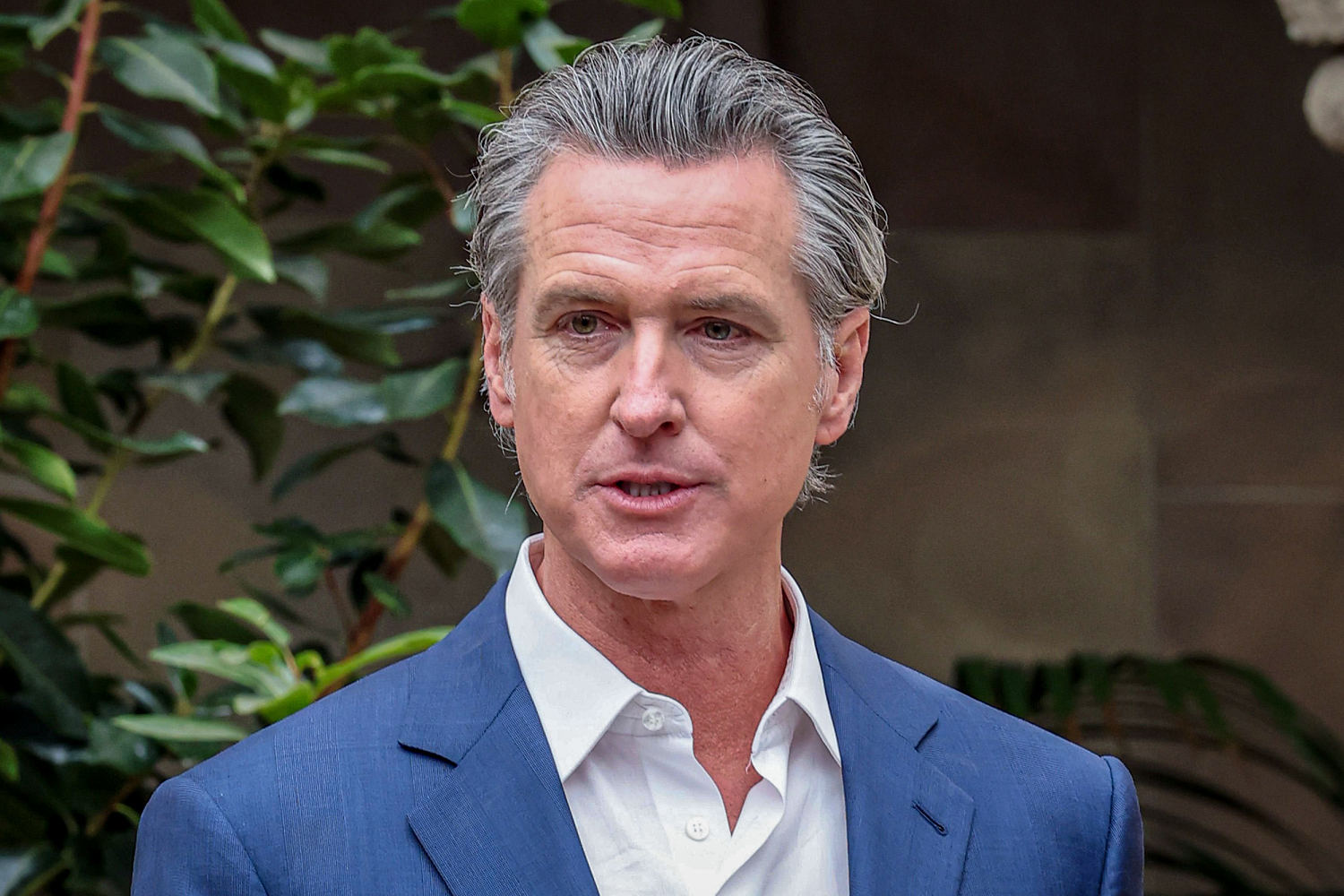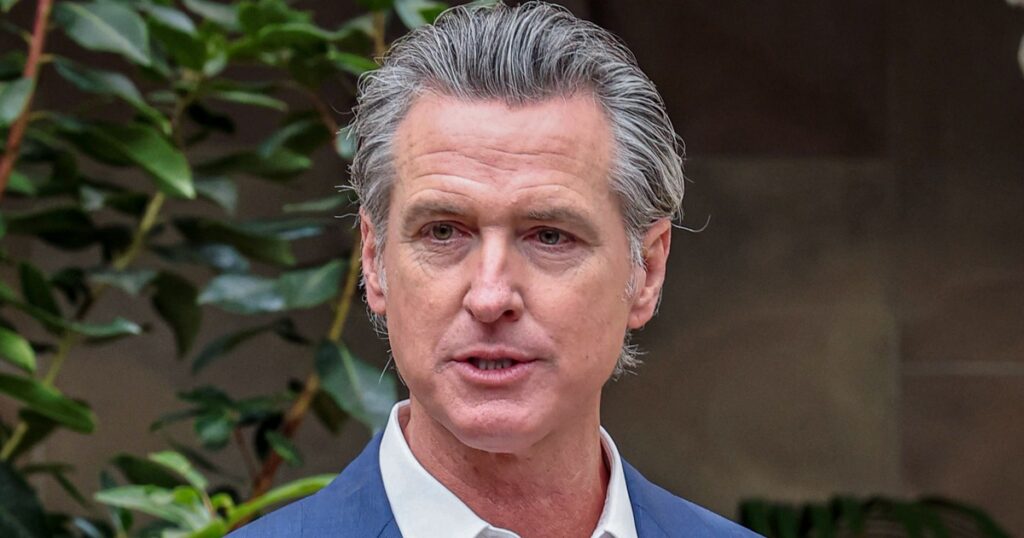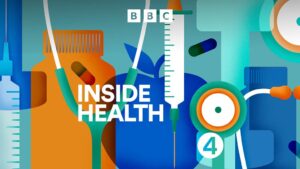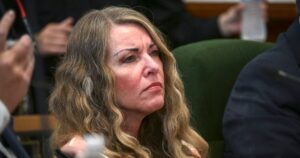
Welcome to the online version of From the Politics Desk, an evening newsletter that brings you the NBC News Politics team’s latest reporting and analysis from the White House, Capitol Hill and the campaign trail.
In today’s edition, California Gov. Gavin Newsom sits down for an interview with Jonathan Allen to discuss his views on how to rebuild the Democratic Party and the recent backlash he’s received from some progressives. Plus, Steve Kornacki shifts his election focus from the U.S. to the Vatican as cardinals prepare to pick the next pope.
Sign up to receive this newsletter in your inbox every weekday here.
— Adam Wollner
🗣️ We want to hear from you!
Have a question for the NBC News Politics Desk about the latest moves from the Trump administration, what comes next on Capitol Hill or anything else happening in Washington?
Send your questions to politicsnewsletter@nbcuni.com and we may answer them in a future edition of the newsletter.
Gavin Newsom: Democrats need to stop looking for a savior on a ‘white horse’
By Jonathan Allen
SAN ANSELMO, Calif. — Gov. Gavin Newsom, widely viewed as a potential contender for the 2028 Democratic presidential nomination, had tough words for his own party in an exclusive interview with NBC News in this Marin County suburb north of San Francisco.
Democrats have been too focused on the personality of candidates at the top of the ticket, rather than building a platform that is bigger than the nominee and addresses how it will fight for what voters want, he said.
“We just have to move beyond the guy or gal on the white horse that’s going to come save the day — it’s exhausting,” the second-term chief executive of the nation’s most-populous state said. “This party needs to rebuild itself from the bottom up, not top down. We are as dumb as we want to be.”
Responding to progressive backlash: In his nascent quest to help revitalize the Democratic Party, Newsom has been criticized by some progressives for hosting a pair of high-profile allies of President Donald Trump — Steve Bannon and Charlie Kirk — on his new podcast, “This is Gavin Newsom.” (The writer of this article sat for an interview on the podcast this week.)
In his talk with Kirk, Newsom further infuriated some allies in the LGBTQ community and on the left by announcing that he opposes trans athletes competing in women’s and girls’ sports.
Newsom said he has been surprised by the ferocity of the backlash against his interviews with MAGA figures, but he appears to be committed to learning from Trump’s victories in two of the last three presidential elections. He was particularly struck by Trump’s advantage with young men, which he attributed to the attention the president paid to them — which was demonstrated in part by his appearing on podcasts and YouTube shows popular with that cohort.
“He had no policy to back up for young men, how to take care of these kids,” Newsom said. “But he at least expressed that — I see you, you matter, I care.”
Read more from the interview →
Breaking down the world’s most closely watched election
By Steve Kornacki
The electorate will be small, the process will play out entirely in secret, and, other than the name of the winner, the results of the voting will never be publicly known.
In the coming weeks, Pope Francis’ successor will be chosen by members of the Catholic Church’s College of Cardinals, senior clerical leaders from around the world. There are currently 252 of them, but only those under 80 years old are eligible to take part, leaving a total of 135 “cardinal electors” who will comprise the electorate.
Eighty percent of the cardinal electors were appointed by Francis during his 12-year tenure, which was marked by a concerted effort to decentralize power away from Rome. As a result, just under 40% of the cardinal electors will come from Europe, a significant drop from the last papal election in 2013. And far more countries (72) will be represented this time around than then (48).
Without polling, endorsements or even any campaigning, how can you handicap a race like this? For insight, I talked with Fr. Patrick Mary Briscoe, the editor of Our Sunday Visitor, a Catholic magazine.
(This conversation has been lightly edited for length and clarity.)
Kornacki: Pope Francis appointed 80% of the cardinals who are eligible to vote. How much does that shape the process?
Briscoe: I think it’s fair to say that Pope Francis has completely reshaped the College of Cardinals, and he’s done so for two reasons. First, because he’s appointed cardinals from what he called the margins or the peripheries. It represents intentional decentralization of the church government, looking to far-flung places to — very intentionally, by his own description — to make a mess, to shake up how things work in Rome. The significance that that will bring to this body can’t be underestimated.
The second point is that people on the whole misunderstand what it means that Pope Francis would appoint someone to be a cardinal. It doesn’t mean necessarily that that man is in complete ideological conformity with the pope. Pope Francis is famous for working with people with whom he had substantial disagreement. I think it would be a mistake if you look at the reshaping of the College of Cardinals and interpret it as every member thinking with the mind of Francis.
Kornacki: Does that decentralization of power make a surprise outcome more likely?
Briscoe: I genuinely think it does, because given the fact that these cardinals are from the far corners of the world, it means that they don’t know each other the same way they would if they were from neighboring countries or if they’re involved daily in the governance of the church, which was often the case. A lot of cardinals based in Rome who handle the day to day running of the church are very familiar with each other. Once you break that body up and expand it into a number of voices who are principally occupied with governing their local churches across the world, you’re going to get a different approach and a different look at what the church needs.
Kornacki: Is there a general conservative-liberal fault line when it comes to the direction of the church?
Briscoe: I think so, and that’s certainly going to be one of the talking points. One place is with respect to the liturgy. Many Catholics, many bishops even, have been frustrated by Pope Francis’ instruction to restrict the Latin Mass. That is a neuralgic point in the life of the church, and that will certainly be a question: What is the next pope’s approach to traditionalism? Whether or not they’ll want to go in the direction Pope Francis has gone on, that remains to be seen.
Another place would be with regard to the discipline of the sacraments. Pope Francis raised a question about the admission of divorced and remarried persons to Holy Communion. I think questions like that are going to be raised and debated. That’s a very live question in the life of the church.
Kornacki: How does age factor in? Francis was 76 when he was chosen.
Briscoe: I do think age will factor in. I do think, however, that most of the cardinals will be looking for someone who has a demonstrated resume of experience. When Pope Francis appointed bishops, he named lots of pastors — men who have pragmatic experience leading churches. I think it’s reasonable to say there’s a lot of the same spirit in the cardinals he’s appointed. So it’s likely the case that they’ll look for someone who has that kind of experience.
Kornacki: Does an American have a chance?
Briscoe: I don’t think so, no. The reason for that, I think, is that the United States of America plays too large a role on the global stage and already contributes a great deal to the way the Catholic Church is run. The church in the United States makes a contribution both financially and also culturally. I think that that influence is felt strongly in the church, and while many are grateful for it, they also don’t want that presence to have the power of the papacy.
Follow live coverage of Pope Francis’ death →
🗞️ Today’s top stories
- 📱Signalgate: The information Defense Secretary Pete Hegseth shared on at least two separate Signal group chats came from secure messages sent by Army Gen. Michael Erik Kurilla, who leads U.S. Central Command. Read more →
- ➡️ State shakeup: Secretary of State Marco Rubio announced a major reorganization of the State Department, saying it had become “bloated, bureaucratic and unable to perform its essential diplomatic mission.” Read more →
- ⚖️ SCOTUS watch: The Supreme Court appeared likely to rule for parents in Maryland who objected on religious grounds to books made available in a school district’s elementary schools that feature stories about gay and transgender characters. Read more →
- ☀️ Town hall heat: Rep. Byron Donalds, a Republican who is running for governor in Florida, was grilled at a town hall about the Department of Government Efficiency, the Trump administration’s efforts to eliminate diversity initiatives and the Israel-Hamas war. Read more →
- 🗳️ Getting crowded: Rep. Haley Stevens launched her Senate campaign in Michigan, joining a Democratic primary that is shaping up to be one of the most competitive in the country next year. Read more →
- 🗳️ Getting crowded, cont.: Rep. Andy Barr jumped into the Kentucky Senate race to replace retiring Sen. Mitch McConnell, joining former state Attorney General Daniel Cameron on the GOP side. Read more →
- 👀 Seeing double: Trump is splitting his endorsement in the Arizona GOP gubernatorial primary, backing Rep. Andy Biggs after previously throwing his support behind Karrin Taylor Robson. Read more →
- 🎤 Gore weighs in: Former Vice President Al Gore compared the Trump administration’s “ongoing attacks on liberty” to Nazi Germany. Read more →
- 🐤 Canary in the hair salon?: Salon owners say they’re seeing a shift in their clients’ spending that could be a warning sign for what’s ahead for the wider economy. Read more →
- Follow live politics coverage →
That’s all From the Politics Desk for now. Today’s newsletter was compiled by Adam Wollner.
If you have feedback — likes or dislikes — email us at politicsnewsletter@nbcuni.com
And if you’re a fan, please share with everyone and anyone. They can sign up here.









More Stories
‘Doomsday mom’ Lori Vallow Daybell is convicted in fourth husband’s death
Judge questions deportation case of Harvard scientist accused of smuggling frog embryos
At least 26 tourists killed by gun men at a resort in Kashmir, Indian police say